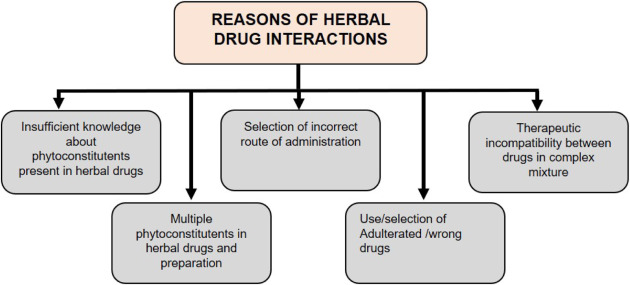Ayurvedic herbs are renowned for their health benefits and holistic healing properties. However, not all herbal remedies are free from risks, especially when combined with conventional medications. Herb-drug interactions can lead to adverse effects or reduce the efficacy of treatments, making it essential to approach herbal remedies with caution.
Understanding Herb-Drug Interactions
Herb-drug interactions occur when the active compounds in herbs alter the way a medication works in the body. These interactions can increase or decrease the drug’s effectiveness or lead to unwanted side effects.
Common Examples of Herb-Drug Interactions
- Turmeric (Curcuma longa)
- Interaction: Turmeric may enhance the effects of blood-thinning medications, such as warfarin or aspirin, increasing the risk of bleeding.
- Precaution: Individuals on anticoagulants should consult a healthcare provider before using turmeric supplements.
- Ashwagandha (Withania somnifera)
- Interaction: May amplify the effects of sedatives or medications for anxiety and insomnia.
- Precaution: Avoid combining ashwagandha with sedative drugs without professional guidance.
- Ginseng
- Interaction: Can interfere with blood sugar control in diabetic patients and reduce the efficacy of anticoagulants.
- Precaution: Regular monitoring of blood sugar levels is essential when using ginseng with diabetes medications.
- Garlic (Allium sativum)
- Interaction: Known to enhance the effects of blood-thinning drugs, increasing the risk of excessive bleeding.
- Precaution: Consult a doctor before combining garlic supplements with anticoagulants.
- Ayurvedic herbs are renowned for their health benefits and holistic healing properties. If you’re interested in creating your own collection of Ayurvedic herbs at home, consider Building a Home Apothecary: Essential Ayurvedic Herbs and Remedies. This guide can help you select the right herbs for your needs and teach you how to use them effectively.
Safety Concerns with Ayurvedic Herbs
While Ayurvedic herbs are natural, they are not free from risks. Certain factors can influence their safety:
- Dosage: Overuse of herbal supplements can lead to toxicity.
- Purity: Contaminated or adulterated herbal products may contain harmful substances like heavy metals.
- Underlying Health Conditions: Some herbs may exacerbate pre-existing medical conditions.
How to Minimize Risks of Herb-Drug Interactions
- Consult a Healthcare Professional
Always discuss herbal remedies with your doctor, especially if you’re taking prescription medications or have chronic health conditions. - Choose Reputable Brands
Purchase herbal supplements from trusted manufacturers that adhere to quality and safety standards. - Monitor Side Effects
Be vigilant about any adverse reactions when combining herbs with medications. Symptoms like nausea, dizziness, or changes in blood pressure should be reported immediately. - Avoid Self-Medication
Self-prescribing herbs without proper knowledge can increase the risk of interactions and side effects.
FAQs About Herb-Drug Interactions
Can I take Ayurvedic herbs with prescription medications?
It depends on the herb and medication. Always consult a healthcare provider to avoid potential interactions.
Are herbal remedies safe for everyone?
No, individuals with chronic illnesses, pregnant women, and those on specific medications should exercise caution and seek medical advice.
How do I know if a herb will interact with my medication?
Your healthcare provider or a certified Ayurvedic practitioner can evaluate potential interactions based on your health profile.

Conclusion
While Ayurvedic herbs offer numerous health benefits, their potential to interact with conventional medications cannot be overlooked. Understanding herb-drug interactions and taking precautions can help ensure safe and effective use of herbal remedies.
For more insights into Ayurvedic safety and wellness, consult a certified practitioner or visit National Center for Complementary and Integrative Health.
